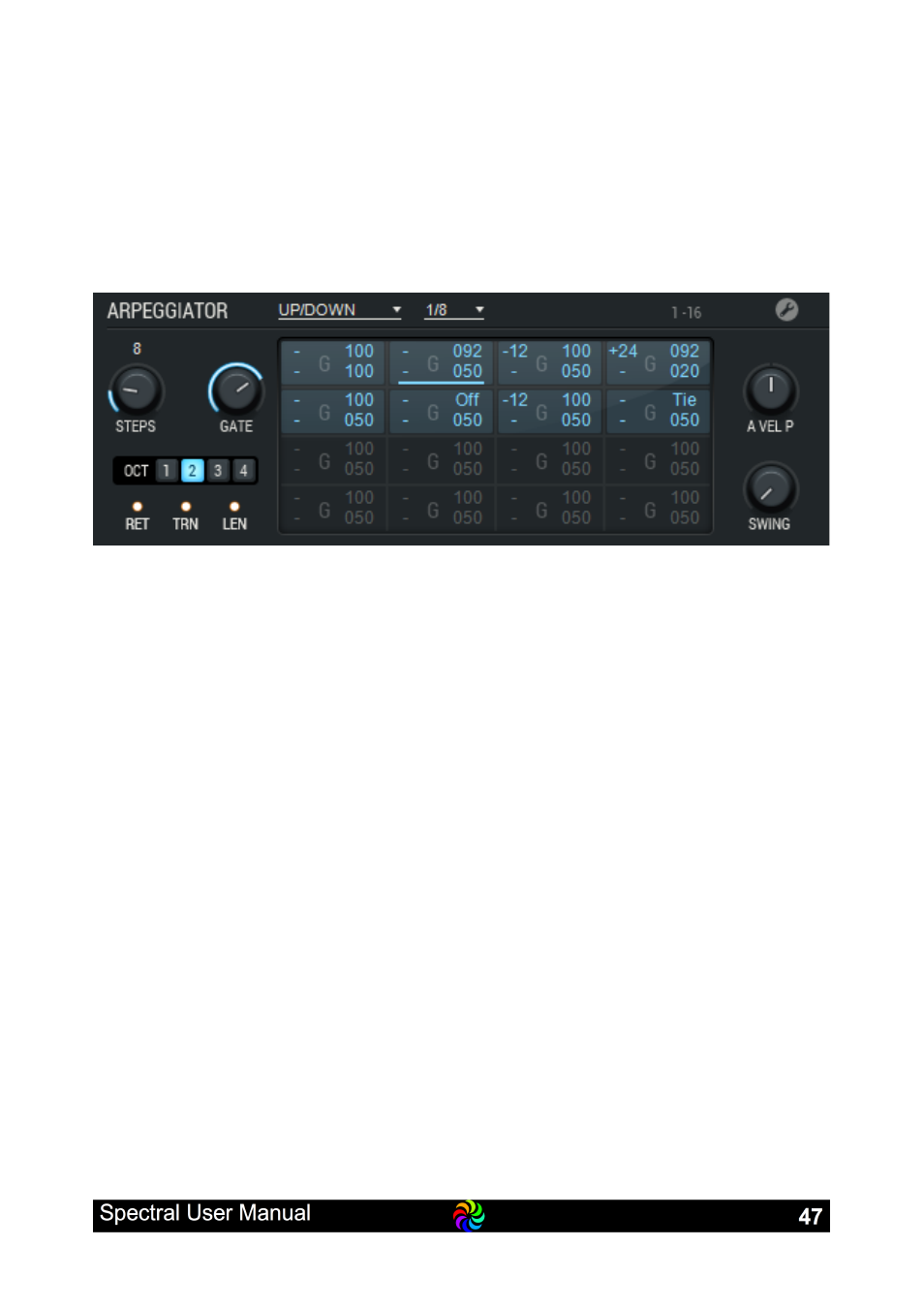Arpeggiator – LinPlug Spectral User Manual
Page 47

Arpeggiator
The Spectral's Arpeggiator allows you to create very sophisticated user-
defined arpeggios. Arpeggios are chords that are played as separate
successive notes (also called broken chords). With the Spectral's
Arpeggiator you can control the way the arpeggio is played in great detail.
Right next to the Arp (Arpeggiator) label you find the Mode selector. The
Arpeggiator Mode defines how the Arpeggiator functions:
§
Off: Switches the Arpeggiator completely off.
§
Mod-Only: In this mode the Arpeggiator is Off and does not influence
chords (or single notes) being played. However, the Arpeggiator is
available as a Modulation Source in the Modulation Matrix as if it were
switched on. Using the Arpeggiator in the Modulation Matrix is like
having an LFO with up to 32 individually definable steps.
§
Up, Down, Up/Down, Up/Down+, Down/Up, and Down/Up+: These
modes play typical arpeggiator patterns or arpeggios which, as
described above, are the notes of the chord played successively
instead of simultaneously.
In Up mode the chord notes are played in ascending order starting from
lowest note. In Down mode, the playback sequence is reversed with
chord notes being played in descending order starting from highest
note. In UpDown mode chord notes are played from lowest to highest
and then from highest to lowest. In DownUp mode this pattern is
reversed. A “+” sign after the mode type indicates that the highest and
lowest notes of the chord are played twice. For example, in the case of
UpDown mode the chord C-E-G would be arpeggiated as C-E-G-E and
